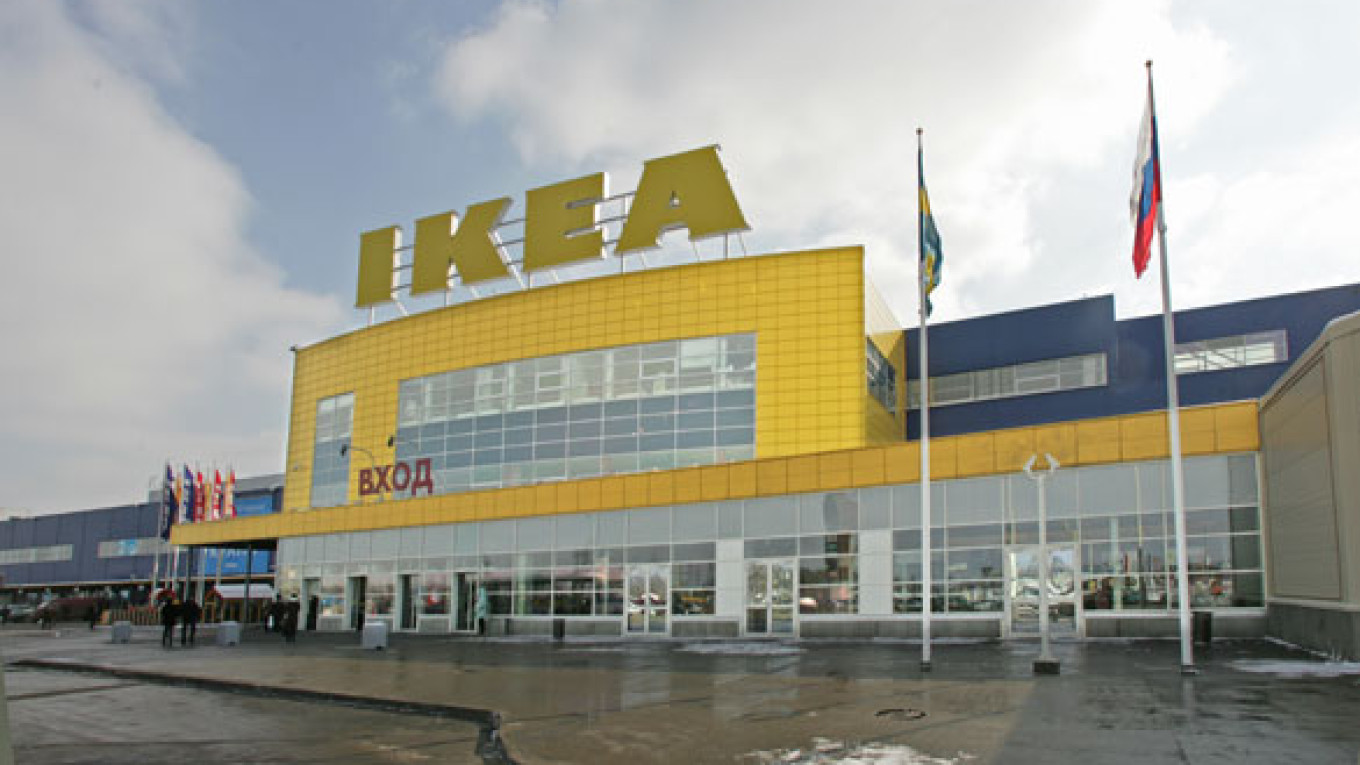IKEA is changing its strategy in Russia to focus on existing stores rather than expansion to more sites, new IKEA CEO for Russia Per Wendschlag said Wednesday.
No new sites will be opened in the next three to five years, he said.
"We put in the tenants who were waiting," Wendschlag said of the company's Mega malls. Now more attention will be paid to the mix of tenants and to upgrading and expanding the facilities. There are 12 malls currently in operation in Russia.
Investment will continue, Wendschlag said, but it will be funneled "into other things."
"We will take a break and work with what we have," he told reporters.
Wendschlag replaces Per Kaufmann, who was dismissed in February after failing to intervene in the plans of a company contractor to pay a bribe. The bribe was connected with attempts to ensure the power supply to the Mega-Parnas mall outside St. Petersburg.
IKEA has been a vocal opponent of corruption worldwide.
Wendschlag inherits a number of problems from Kaufmann, including shopping complexes in the regional cities of Samara and Ufa that are two years behind schedule in opening.
Wendschlag said he spent a day at the Samara site and met with Samara region Governor Vladimir Artyakov and local building inspectors. The opening of the complex is being held up because of safety code violations.
"We are doing the things we have to do to open. I won't take any chances with opening a store that is not safe. We learned from our mistakes. It was very costly learning," Wendschlag said, maintaining the conciliatory tone that the company has adopted since Kaufmann's departure.
Wendschlag said he will travel to Ufa soon. Construction of the Ufa mall was delayed after inspectors found problems with the contractor's building permit and foreign labor force in 2008.
The company has also experienced difficulties with Moscow regional officials in its plans to expand near Moscow.
"We could grow much faster'' near Moscow, Wendschlag said.
Renaissance Capital analyst Natalia Zagvozdina is sympathetic with the company's problems on the Moscow market.
"The Moscow region is shooting itself in the foot. IKEA is a great employer and has very good, adequately designed products that the local market cannot produce," she said.
"The market is not saturated for IKEA or for furniture," Zagvozdina said, but "IKEA has built quite a lot already."
IKEA has invested $4 billion in Russia since opening its first store in 2000.
Kaufmann canceled plans for 30 new projects and declared an investment freeze in the heat of the conflict with Samara regional officials in 2009.
Wendschlag took over in Russia on Oct. 1 after being managing director of Inter IKEA Centre Group for Austria, Switzerland and Southeast Europe.
A Message from The Moscow Times:
Dear readers,
We are facing unprecedented challenges. Russia's Prosecutor General's Office has designated The Moscow Times as an "undesirable" organization, criminalizing our work and putting our staff at risk of prosecution. This follows our earlier unjust labeling as a "foreign agent."
These actions are direct attempts to silence independent journalism in Russia. The authorities claim our work "discredits the decisions of the Russian leadership." We see things differently: we strive to provide accurate, unbiased reporting on Russia.
We, the journalists of The Moscow Times, refuse to be silenced. But to continue our work, we need your help.
Your support, no matter how small, makes a world of difference. If you can, please support us monthly starting from just $2. It's quick to set up, and every contribution makes a significant impact.
By supporting The Moscow Times, you're defending open, independent journalism in the face of repression. Thank you for standing with us.
Remind me later.


